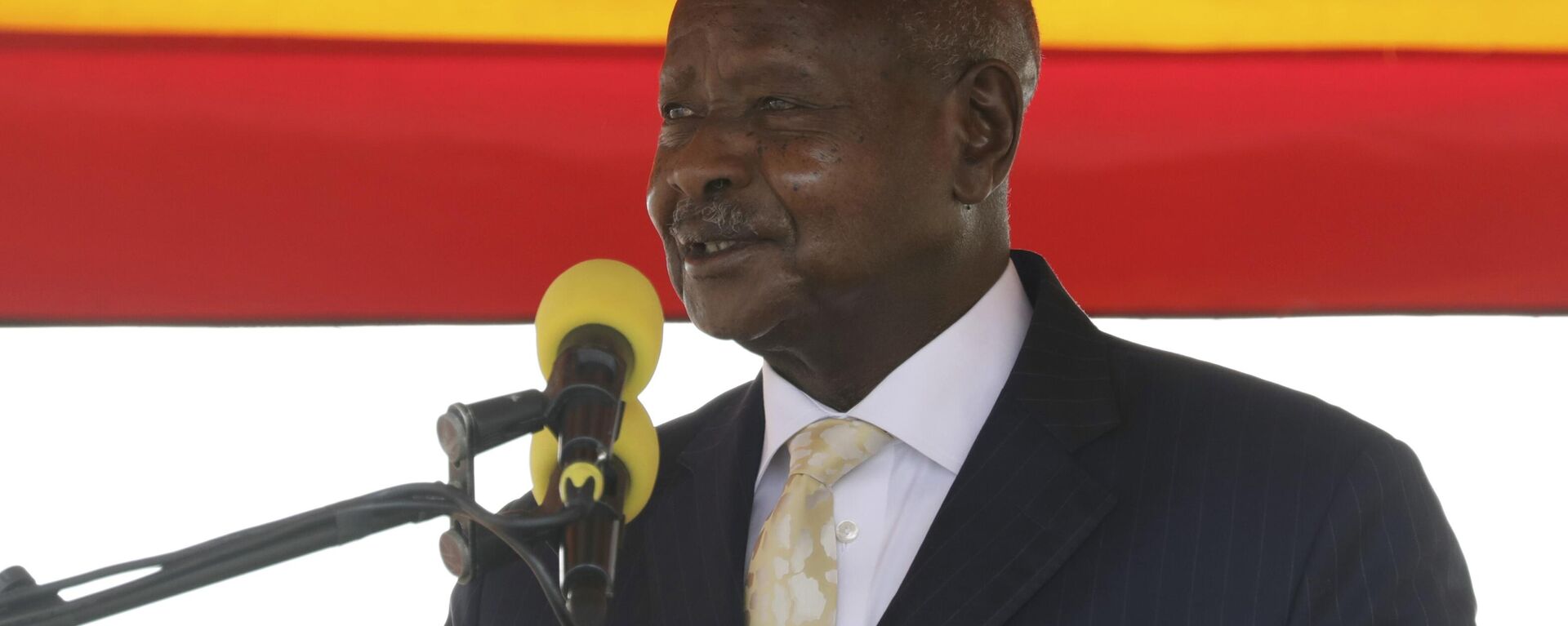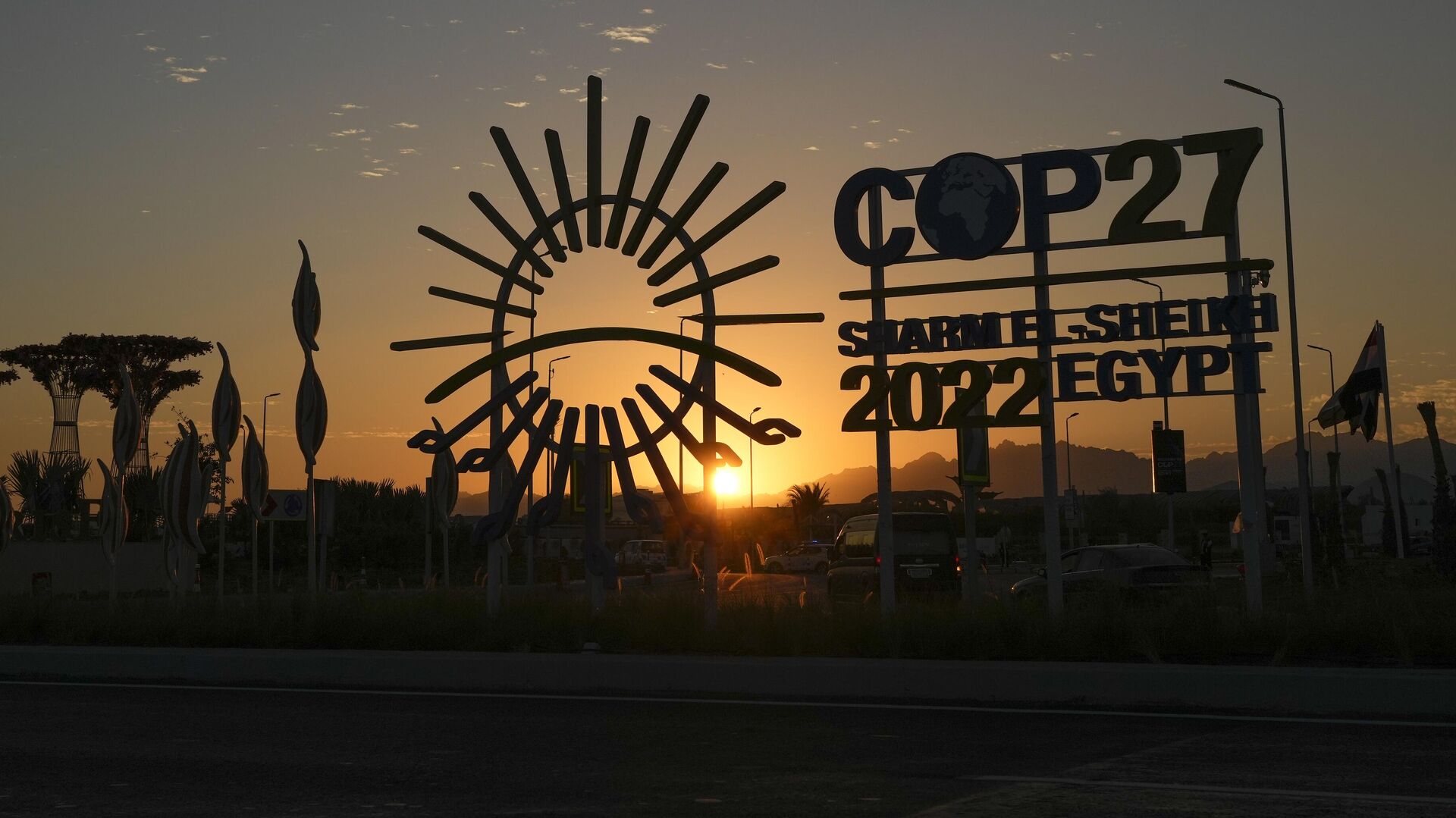https://sputnikglobe.com/20221114/south-africa-environment-minister-urges-west-to-provide-immediate-climate-change-help-1104117290.html
South Africa Environment Minister Urges West to Provide Immediate Climate Change Help
South Africa Environment Minister Urges West to Provide Immediate Climate Change Help
Sputnik International
In this article you will read why South Africa Environment Minister Barbara Creecy called on the richest countries to provide immediate financial aid to the developing nations, hit by climate disasters.
2022-11-14T15:57+0000
2022-11-14T15:57+0000
2023-01-15T17:49+0000
africa
south africa
cop27 in egypt
loss
damage
climate summit
blackout
rolling blackouts
power outage
loan
https://cdn1.img.sputnikglobe.com/img/07e6/0b/0e/1104121939_218:0:3859:2048_1920x0_80_0_0_31eceb27ca40f2068cd0de09245e82ee.jpg
South Africa’s Environment Minister Barbara Creecy has called on the richest countries to provide immediate financial aid to developing nations hit by climate disasters.“Of course” Africa needs money right now, she underlined.At the same time, the minister pointed out that India and China should not participate in the financing, as they are also among the developing states.These calls echoed the statements Creecy previously made within the framework of the event.The minister emphasized the importance of the loss and damage issue, saying that many countries, including her own, “have already faced cataclysmic climate events.”Creecy also cited World Bank data, according to which, “Developing countries are spending between 3 and 12% of their GDP already dealing with climate change and impacts of climate change.”Another important step to achieve progress, the minister argued, is to reform the international financial system.Talking about the $8,5 billion that was committed by the developed world to assist South Africa’s transition from coal towards clean energy, Creecy stated that only a small part of the money [less than 3%] was allocated as grants.In late October, South Africa approved an $8.5 billion energy transition investment plan, the overwhelming majority of which has been agreed in the form of loans, which raised concerns about fairness and South Africa’s debt burden. Currently, South Africa's electrical system depends on coal for over 80% of its capacity.Meanwhile, rolling blackouts in South Africa are largely determined by insufficient funding and a lack of cost-effective technology.At the same time, European countries have repeatedly failed to deliver on their climate finance pledges made in 2009 to collectively mobilize $100 billion a year by 2020 and transfer the money to the countries in need. In late October, a senior UN official argued that billions of dollars had been actually allocated, but he had no idea where the climate money went.Previously, Sudanese-British billionaire Mo Ibrahim stated that Europe is opposing Africa’s initiatives to develop its energy sector, while currently “600 million African people” have no electricity and live without power. He also pointed out that illicit financial flows out of Africa range annually from $89 billion to $107 billion, while the total northern aid to Africa is estimated at around $52 billion. “Who is funding whom?” asked the billionaire.
https://sputnikglobe.com/20221114/ugandas-president-denounces-europe-for-double-standards-in-regard-to-climate-change-1104089096.html
africa
south africa
Sputnik International
feedback@sputniknews.com
+74956456601
MIA „Rossiya Segodnya“
2022
News
en_EN
Sputnik International
feedback@sputniknews.com
+74956456601
MIA „Rossiya Segodnya“
Sputnik International
feedback@sputniknews.com
+74956456601
MIA „Rossiya Segodnya“
climate change, help to develooping countries, cop27, climate summit, $8.5 billion energy transition investment plan, $100 billion annual aid
climate change, help to develooping countries, cop27, climate summit, $8.5 billion energy transition investment plan, $100 billion annual aid
South Africa Environment Minister Urges West to Provide Immediate Climate Change Help
15:57 GMT 14.11.2022 (Updated: 17:49 GMT 15.01.2023) About 600 million Africans currently live without electricity, while the West continues to fall short on financial pledges to mitigate climate change effects. In this context, African leaders and activists maintain appeals in an attempt to hold the West accountable for the climate crisis.
South Africa’s Environment Minister Barbara Creecy has called on the richest countries to
provide immediate financial aid to developing nations hit by climate disasters.
“From the perspective of the African Group of Negotiators we do need to see immediate support for loss and damage on the continent,” Creecy said on the sidelines of the ongoing climate summit COP27.
“Of course” Africa needs money right now, she underlined.
At the same time, the minister pointed out that India and China should not participate in the financing, as they are also among the developing states.
These calls echoed the statements Creecy previously made within the framework of the event.
“We have to make sure that developed countries, who are primarily responsible for the climate crisis, do not backslide on the commitments that they made at COP26,” she stated a few days ago.
The minister emphasized the importance of the
loss and damage issue, saying that many countries, including her own, “have already faced cataclysmic climate events.”
Creecy also cited World Bank data, according to which, “Developing countries are spending between 3 and 12% of their GDP already dealing with climate change and impacts of climate change.”
“As developing countries, we are saying we can’t wait for some distant process of setting up a facility for the financing of loss and damage. And we need to see immediate action arising from this COP to assist developing countries to deal with loss and damage and to find a way out of the indebtedness that many of our countries face,” she stated.
Another important step to achieve progress, the minister argued, is to reform the international financial system.
“When the county faces a cataclysmic climate event, there needs to be debt restructuring, the multinational development banks need recapitalizing,” she indicated.
Talking about the $8,5 billion that was committed by the developed world to assist South Africa’s transition from coal towards clean energy, Creecy stated that only a small part of the money [less than 3%] was allocated as grants.
“Well, there’s a grant component, but the grant component is small and this was a concern that President Ramaphosa raised… Some of the money is in the form of concessional loans and our national treasury has really scrutinized those loans to make sure that we are being lent this money at a rate, which is significantly lower than the amount of money that we could borrow on the open market,” she said.
In late October, South Africa
approved an $8.5 billion energy transition investment plan, the overwhelming majority of which has been agreed in the form of loans, which raised concerns about fairness and South Africa’s debt burden. Currently, South Africa's electrical system depends on coal for over 80% of its capacity.
Meanwhile, rolling blackouts in South Africa are largely determined by insufficient funding and a lack of cost-effective technology.

14 November 2022, 14:48 GMT
At the same time, European countries have repeatedly failed to deliver on their climate finance pledges made in 2009 to collectively mobilize $100 billion a year by 2020 and transfer the money to the countries in need. In late October, a senior UN official
argued that billions of dollars had been actually allocated, but he had no idea where the climate money went.
Previously, Sudanese-British billionaire Mo Ibrahim stated that Europe is opposing Africa’s initiatives to develop its energy sector, while currently “600 million African people” have no electricity and live without power. He also
pointed out that illicit financial flows out of Africa range annually from $89 billion to $107 billion, while the total northern aid to Africa is estimated at around $52 billion.
“Who is funding whom?” asked the billionaire.


